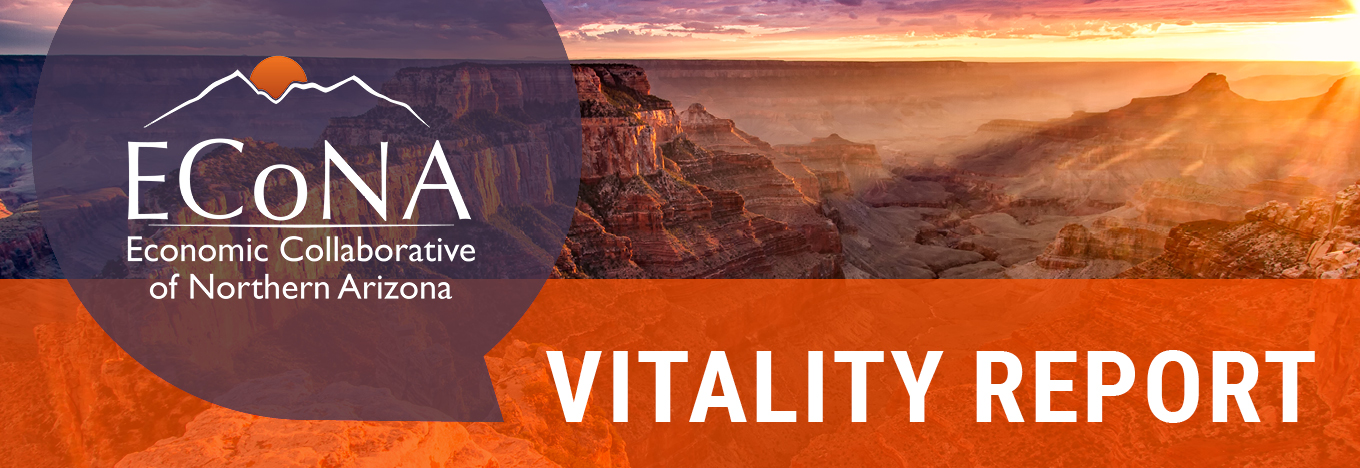 Last week, local business and government leaders discussed what is needed to speed up the region’s economic recovery during a Zoom call with U.S. Senator Kyrsten Sinema hosted by the Economic Collaborative of Northern Arizona.
Last week, local business and government leaders discussed what is needed to speed up the region’s economic recovery during a Zoom call with U.S. Senator Kyrsten Sinema hosted by the Economic Collaborative of Northern Arizona.
Sen. Sinema told the 50 participants on the call that recent political partisanship around coronavirus made it seem as if leaders needed to choose between public health and reopening the economy, which she described as a dangerous way to approach the pandemic.

“The reality is that this virus hasn’t just paused our economy; it’s fundamentally disrupted and changed people’s patterns of behavior, and these effects will linger even after it’s safe for stay at home orders to be lifted,” said Sen. Sinema, who was recently named to President Trump’s Recovery Task Force. “So we need a robust public health response to protect our most vulnerable but also to restore consumer confidence and ensure that our economy can fully recover.”
Most of the session consisted of representatives of local companies and organizations – all of whom are members of ECoNA’s Advisory Council, Board or Special Committees – explaining what they need to restart or expand current business operations. Their concerns fell into four general areas:
1. Having a united approach on how to safely loosen restrictions. As one person noted on the call, businesses crave certainty and are nervous because there is no unified national plan for the recovery with each state pursuing its own guidelines.
Sen. Sinema counseled that in the absence of a federal plan, businesses should pay attention to statewide data on COVID-19 positive test results and then follow the protocols suggested by the Centers for Disease Control and Prevention last month. The CDC advocated for a gradual three-phase approach to reopening, with businesses moving into each successive phase after certain criteria are met, including two weeks of declining COVID-19 case counts.
2. Expanded testing and infection tracking. Most of the callers said it was vital to have increased access to testing in order to make employees feel secure about returning to work. Some participants also indicated that they might need help paying for the tests. At a cost of $50 per test, an organization like Northern Arizona University could be looking at millions of dollars to test students, faculty and staff.
3. Access to personal protective equipment. Northern Arizona Healthcare representatives noted on the call that hospitals have suffered from declining revenues because of a halt in elective procedures while simultaneously seeing PPE costs skyrocket. But health care groups aren’t the only ones needing protective gear, callers said; items like masks and hand sanitizer will be necessary for a wide range of companies and organizations in order to boost both employee and consumer confidence.
4. Paycheck Protection Program details. While some local businesses that were able to secure the potentially forgivable loans through the CARES Act, they often received the funding with no clear instructions on the rules for how the money should be spent in order to be deemed forgivable. There are also questions about whether the debt that is written off carries a tax liability.
Sen. Sinema noted that she has asked for clarification from the Small Business Administration and the Treasury Department on the loans and urged businesses to keep scrupulous records of how they use the funds. She also noted that Congress is working on a followup CARES act.
“We are hoping in the next package, we can fix some of the problems that exist and to expand some of the help to meet the particular needs of the hospitality, restaurant and tourism industry,” she said.
We are grateful to Sen. Sinema for her time and advocacy for Arizona businesses as we approach this new chapter in the COVID-19 era.
If you have questions or need assistance from the senator’s office, please email casework@sinema.senate.gov.


Leave a Reply